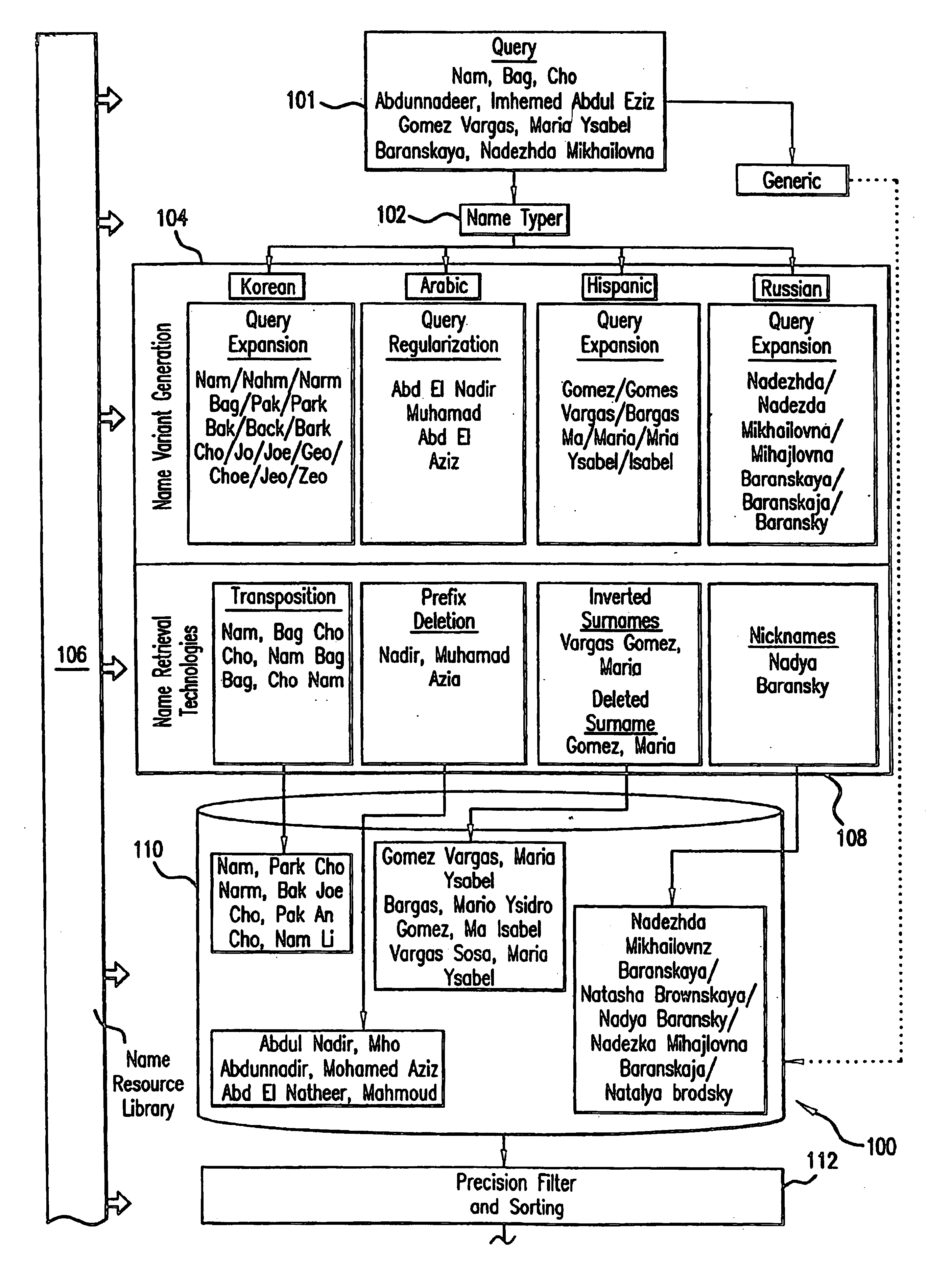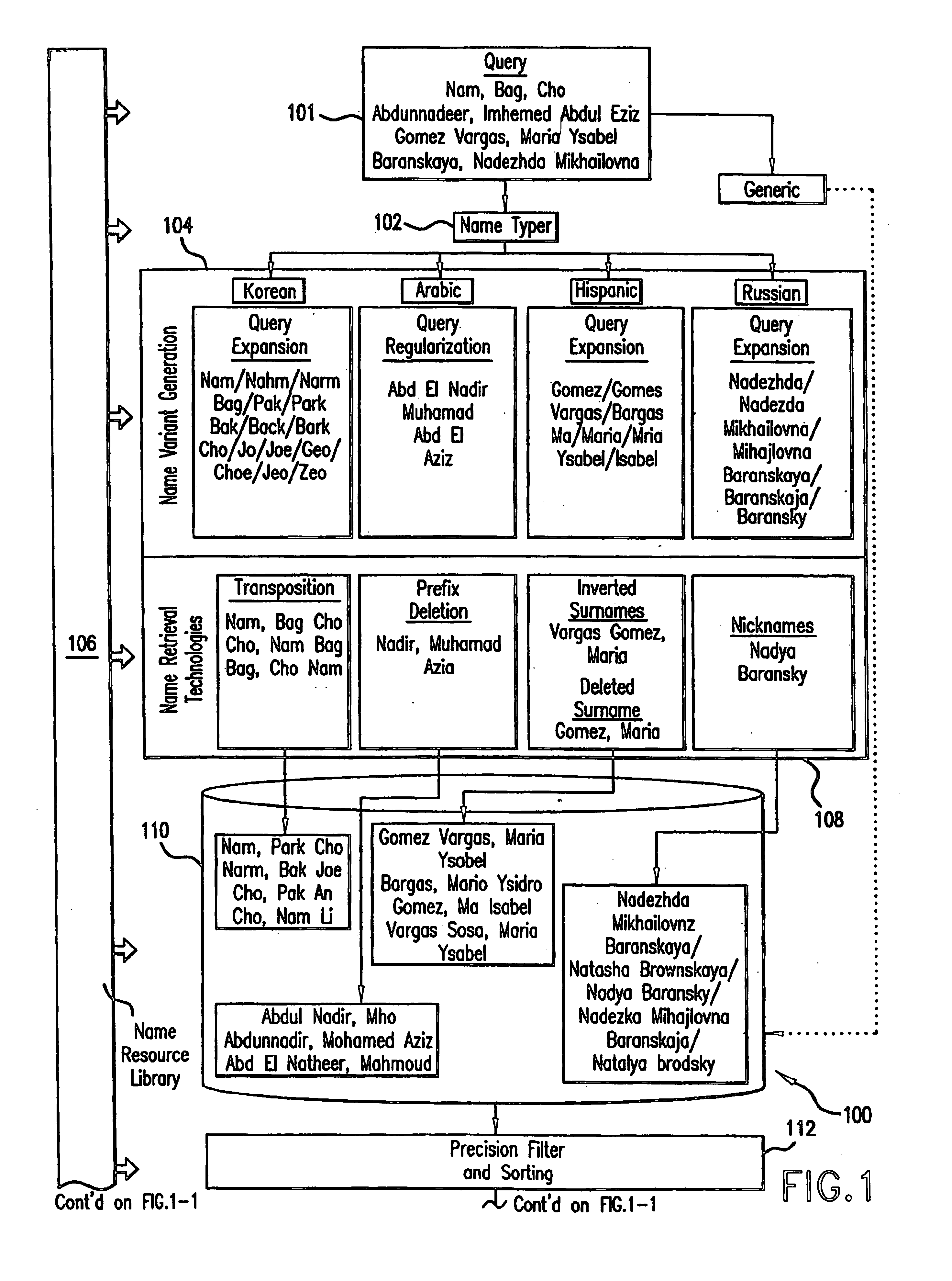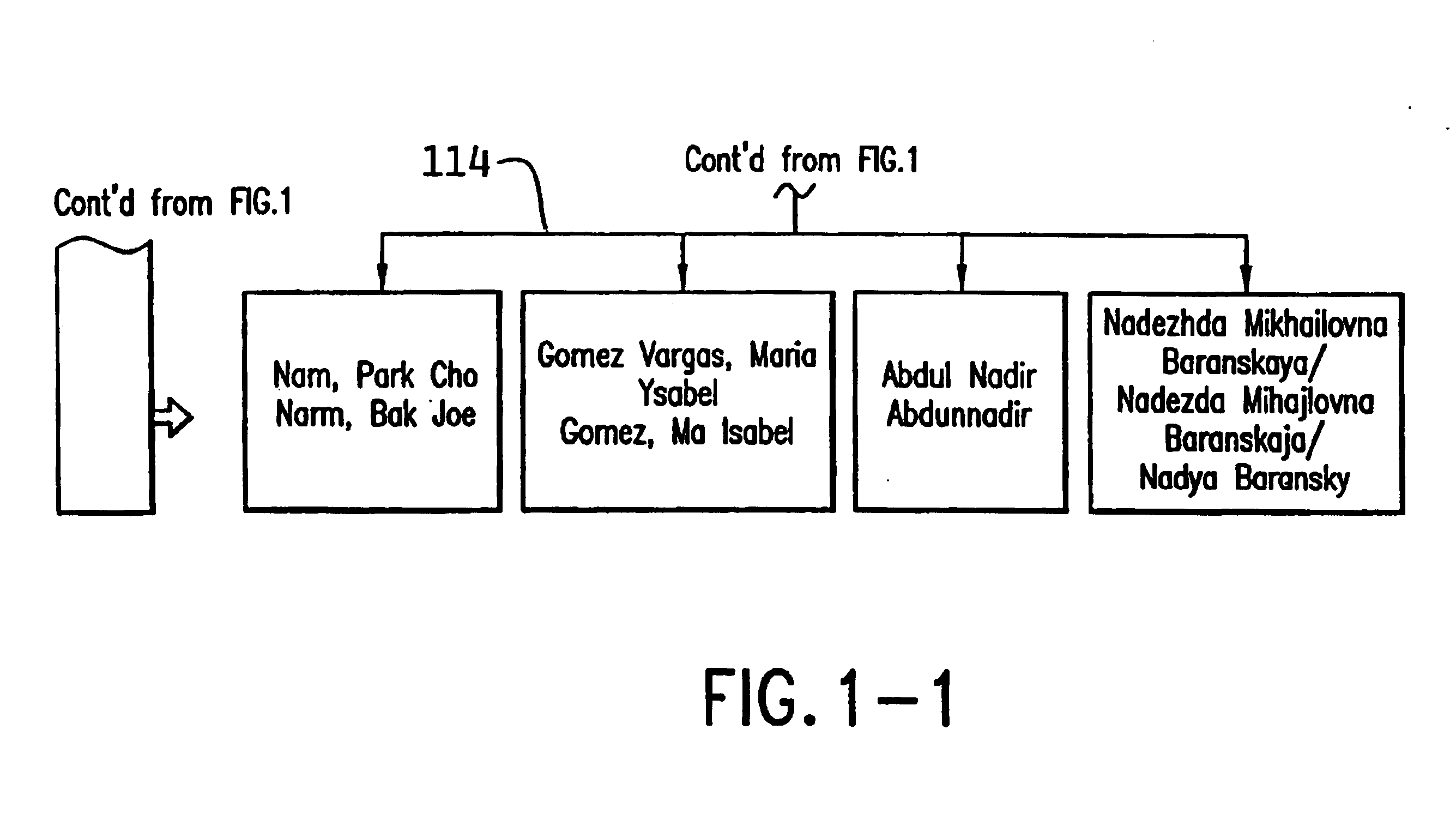System and method for adaptive multi-cultural searching and matching of personal names
a multi-cultural and personal name technology, applied in the field of automatic data processing systems, can solve the problems of significant information retrieval challenges, system inability to address the full range of spelling variations, and behavior and permutations, and achieve the effect of achieving the desired level of precision and recall
- Summary
- Abstract
- Description
- Claims
- Application Information
AI Technical Summary
Benefits of technology
Problems solved by technology
Method used
Image
Examples
Embodiment Construction
[0040]FIG. 1 shows a multi-algorithmic name search system 100 according to a first preferred embodiment of the present invention, in block schematic form. In this embodiment, system 100 sequentially performs three basic processes. First, system 100 selects a search strategy based on the cultural origin, distribution, language or ethnicity of the name in question and pre-processes the name to break it into its component parts for processing. Second, a subset of the available database records is selected, based on a culture-relevant key-indexing strategy. The objective of this subsetting process is to select a set of keys that are likely matches for the name in question. Finally, the records selected in the second process are subjected to a similarity measurement, using a complex algorithm tailored according to the selected search strategy, to evaluate and rank-order potential matches. Thus, system 100 adopts a search strategy that is specific to the ethnicity or cultural origin of th...
PUM
 Login to View More
Login to View More Abstract
Description
Claims
Application Information
 Login to View More
Login to View More - R&D
- Intellectual Property
- Life Sciences
- Materials
- Tech Scout
- Unparalleled Data Quality
- Higher Quality Content
- 60% Fewer Hallucinations
Browse by: Latest US Patents, China's latest patents, Technical Efficacy Thesaurus, Application Domain, Technology Topic, Popular Technical Reports.
© 2025 PatSnap. All rights reserved.Legal|Privacy policy|Modern Slavery Act Transparency Statement|Sitemap|About US| Contact US: help@patsnap.com



